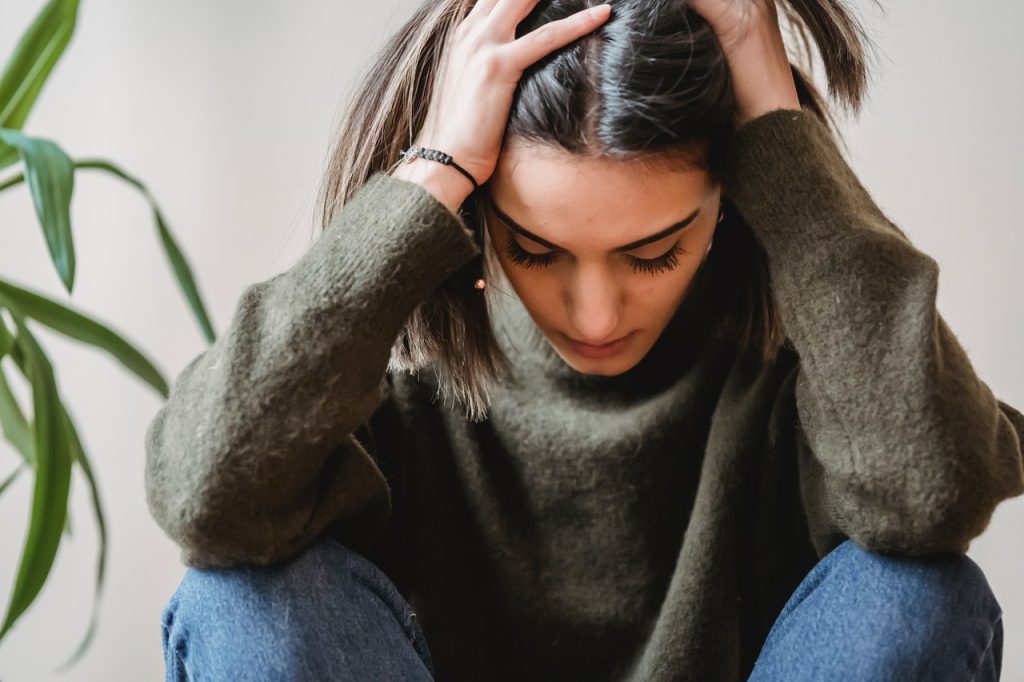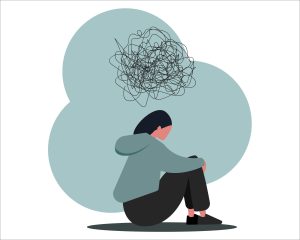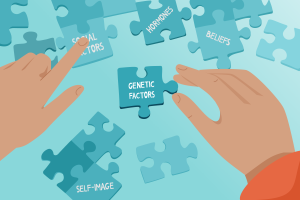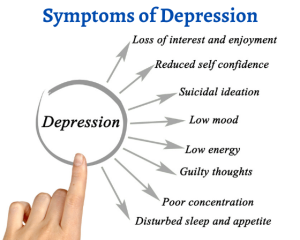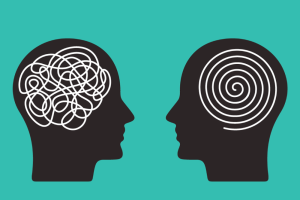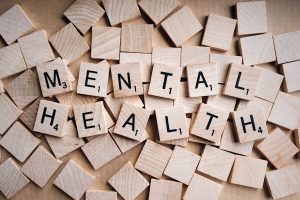Depression is a serious mental illness that can impact your life in many ways. It can be difficult to deal with, but with the right tools and resources, you can manage your illness and live a happy, healthy life. In this comprehensive guide, we will discuss all aspects of it, including its symptoms, causes, treatment options, and more. We hope this guide will help you understand and cope with your depression.
Contents
- 1 What Is Depression?
- 1.1 Causes
- 1.2 Symptoms
- 1.3 Negative Impact Of Depression
- 1.4 What Are The Treatment Options Of It?
- 1.5 What Are The Therapy Options For Treating It?
- 1.6 Medications To Take Help With Depression
- 1.7 When To Get Professional Help?
- 1.8 Why Helping With Depression Is Difficult?
- 1.9 How To Help Yourself With Depression?
- 1.10 How Can I Help A Friend Or Family Member With Depression?
- 2 Conclusion
- 3 A Word From Therapy Mantra
What Is Depression?
Depression is a mental illness that causes feelings of sadness and hopelessness. It can affect how you think, feel, and behave. Depression can make it hard to do the things you used to enjoy. It can also cause problems with sleeping, eating, and thinking. You might think about suicide too.
Also, depression is one of the most common mental illnesses. Each year, it affects millions of people. Depression can occur at any age, but it often starts during young adulthood or middle age. Women are more likely than men to experience depression.
Causes 
The cause of depression is not fully understood. However, it seems to be related to changes in brain chemistry. These changes may be due to a combination of genetic, environmental, and psychological factors.
- Genetics: Depression may be passed down from parents to children.
- Environmental: Traumatic life events, such as the death of a loved one, can trigger depression.
- Psychological: Negative thinking patterns and low self-esteem can lead to depression.
Symptoms 
Depression has many symptoms, which can vary from person to person. Some common symptoms include:
- Feeling sad or hopeless most of the time: Some people with depression may not show much emotion at all, while others may cry a lot.
- Feeling restless and/or anxious: A person with depression may feel restless- think about how you feel when you can’t sit still, or have trouble sleeping. Some people with depression may also experience anxiety- feeling extremely nervous.
- Difficulty concentrating: It can be harder to pay attention in class or during meetings at work when you’re depressed.
- Changes in eating or sleeping habits: Some people with depression eat more, some eat less; some sleep all the time, others can’t sleep at all. These changes may be significant or minor; they can also come and go.
- Feeling tired or having little to no energy: Some people describe having no energy- they just feel “drained” most of the time or like everything is an effort. When you’re depressed, even little things may feel like a lot of work.
- Not being interested in activities that you used to enjoy: When people are depressed, they often have trouble doing things they once enjoyed. It may feel like it’s just not worth it to you anymore.
- Feeling “down” or negative: When people are depressed, it’s common to have negative thoughts about things like your appearance, how much you’re able to do, and the future.
- Bad or restless feelings about yourself: You may feel like you’re a bad person, that nothing good will happen to you, or that you’ll never feel good again.
- Changes in weight or appetite
- Restlessness and irritability: It’s common for people to feel agitated when they’re depressed- this is often called “restless.” You may become easily frustrated, anxious, or irritated.
Negative Impact Of Depression
Depression is a very serious condition that should not be taken lightly. If it is not addressed properly, it can lead to many other problems, such as suicide. Various studies have shown that depression causes more disability than any other medical illness. The World Health Organization (WHO) has also found that 1 in 10 people suffer from some form of clinical depression. Each year, about 800000 people commit suicide worldwide.
Almost everyone will get sick with a crippling disease at least once in their lifetime. About one-fifth of Americans will suffer from clinical depression at some point in their lives. Teenage girls are four times more likely than boys to develop a major depressive disorder. Clinical depression is the number one mental health problem in America. It is more common than any other illness.
Depression can take different forms which include dysthymic disorder and bipolar disorder. Depressive disorders are the most common mental illness. They make people disabled for longer than any other mental disorder. Depression can have a lot of negative effects on people. It can make it hard for them to socialize or do well in school or at work. Some people might even try to kill themselves because of their depression.
Also, depression can lead to other problems. These can include risky sexual behavior, increased risk for cardiovascular disease (including heart attacks), obesity, and increased age (over 35) at the first episode of psychosis. People with depression may also have a higher rate of substance abuse and be less able to do daily activities.
People who suffer from clinical depression should seek help from their doctors as soon as possible. Treatment is more effective when it is given early. The sooner it starts, the less likely it will have a negative impact on one’s life. Depression can make you feel really sad. This sadness can make it hard for you to talk to your friends, and it might also cause physical problems like making your body hurt or making it hard for you to get a job. People who are depressed might even try to do something that will cause them to die.
Finally, your depressed mood may cause you to neglect your hygiene or have trouble sleeping or eating properly. Sometimes you can’t get out of bed. Sometimes you are too tired and it’s hard to sleep. On other days you feel like your body is moving around a lot while you’re not doing anything.
What Are The Treatment Options Of It?
There are many different treatment options for depression. The best option depends on the cause of your depression and how severe it is.
- Therapy: Therapy, or counseling, is often recommended for people with depression. therapy can help you understand your thoughts and emotions better, which can help you manage your depression.
- Medication: Antidepressants are medications that can be prescribed to treat depression. These medications work by changing the levels of serotonin in the brain.
- Lifestyle Changes: Making some lifestyle changes can also help improve your moods and relieve symptoms of depression. Some healthy lifestyle habits include exercise, adequate sleep, and a balanced diet.
What Are The Therapy Options For Treating It?
There are many different types of therapy that can treat depression. The best type of therapy depends on the cause of your depression and how severe it is. Some common therapies include:
- Cognitive Behavioral Therapy (CBT): CBT is a type of therapy that focuses on changing the thoughts and behaviors that contribute to depression.
- Interpersonal Psychotherapy (IPT): IPT is a type of therapy that focuses on improving relationships and communication skills.
- Psychodynamic Therapy: Psychodynamic therapy is a type of therapy that explores the emotional roots of depression.
- Exposure-Based Therapy: exposure-based therapy involves gradually exposing people to things that make them anxious or fearful. This can help reduce anxiety and depressive symptoms.
Medications To Take Help With Depression
These are a few medicines that you can prefer to get help with depression
1. Celexa Citalopram
2. Paxil Paroxetine
3. Zoloft Sertraline
4. Aventyl Nortriptyline
5. Prozac Fluoxetine
6. Pamelor Trimipramine
7. Effexor Venlafaxine
8. Serzone Nefazodone
9. Tofranil Imipramine
10. Paxil CR Paroxetine
11. Wellbutrin Bupropion
12. Pexeva Paroxetine
13. Remeron Mirtazapine
14. Strattera Atomoxetine
15. Cymbalta Duloxetine
16. Symbyax Fluoxetine & Olanzapine
When To Get Professional Help?
If you are experiencing any of the symptoms of depression, it is important to seek professional help. Depression can be a serious illness and one should. Also, if you are unsure of where to find help, your doctor can provide you with referrals to mental health professionals in your area.
Also, if you or someone you know is experiencing thoughts of suicide, please call the National Suicide Prevention Lifeline.
Why Helping With Depression Is Difficult?
Depression is a complex condition that can be difficult to manage. This is partly because it can cause many different symptoms, which can vary from person to person. Additionally, people with depression may not feel like they have the energy or motivation to seek treatment.
It’s also important to note that it is often accompanied by feelings of shame and guilt. This can make it difficult for people to open up about their condition and seek help.
However, it’s important to remember that this is a treatable condition. Hence, with the right treatment, you can manage your symptoms and improve your quality of life. If you are struggling with depression, don’t hesitate to reach out for help. Also, the suicide prevention lifeline is available 24/11 and can provide you with support and resources.
How To Help Yourself With Depression?
There are many different ways to cope with depression. However here are a few tips:
- Talk to someone you trust about how you’re feeling. Having someone to vent your feelings can really help, even if it’s a friend or family member. The person that you talk to doesn’t even need to be able to give you advice, they just need to be there for you.
- Join a support group or online community for people suffering from the same illness. This is a great way to make friends and meet people who understand what you are going through. Many support groups have their own set of coping skills, and you’ll be surprised how much they can help.
- Find a hobby or activity that interests you. Whether it’s reading, dancing, cooking, do it wholeheartedly.
- Exercise and stay active. This helps by releasing endorphins in the brain, which elevates mood.
- Don’t make any major life changes when you’re depressed. Losing a job, moving house, or splitting up with someone are all things that should be avoided while you’re depressed. When the fog lifts you will have the time to decide what you want to do next.
- Challenge negative thoughts and replace them with positive ones. When you feel like never wanting to get out of bed and face the world, remember that this is a temporary thought.
How Can I Help A Friend Or Family Member With Depression?
If you know someone who is suicidal, there are certain things you can do to help. However here are a few tips:
- Talk to them about their feelings and listen without judgment. Let them know that they are not alone and that you care about them.
- Listen to their problems. Be there for them and listen carefully. Sometimes people just need an ear to listen.
- Learn about the warning signs of suicide so you can recognize them when it is happening.
- Show them that you care and want to help. Listen, Listen, Listen. I know it sounds simple but people who have depression feel alone and very isolated. One can prevent suicide if someone feels that somebody misses them.
- Let them know that you love them. Let them know that you are there for them. Don’t ever feel awkward about calling a professional or telling a trusted friend. If you feel that telling them to get help will make their situation worse then get help for them.
- Encourage them to seek professional help. If someone is suicidal, they need help right away. Encourage a friend or family member to seek that help. You can also call your local crisis lines, hospital emergency room, or your local police department.
- Remember that someone who is suicidal needs professional help. You cannot cure them there is no magic pill. Don’t try to say that you are their friend and they should feel better.
- Provide support and stay with them until professionals arrive. People who are suicidal need professional help. Do not leave the person’s side until professionals arrive.
Conclusion
Depression affects everyone differently. If you or a loved one is experiencing it, please reach out for help and talk to someone about your feelings. There are many resources available that can provide expert advice on how to cope with this difficult time in life. Also, getting the support of a mental health professional who understands what you’re going through can be very helpful in overcoming it.
A Word From Therapy Mantra
Your mental health — your psychological, emotional, and social well-being — has an impact on every aspect of your life. Positive mental health essentially allows you to effectively deal with life’s everyday challenges.
Also, at Therapy Care, we have a team of therapists who provide affordable online therapy to assist you with issues such as depression, anxiety, stress, relationship, OCD, LGBTQ, and PTSD. You can take our mental health test. You can also book a free therapy or download our free Android or iOS app.
